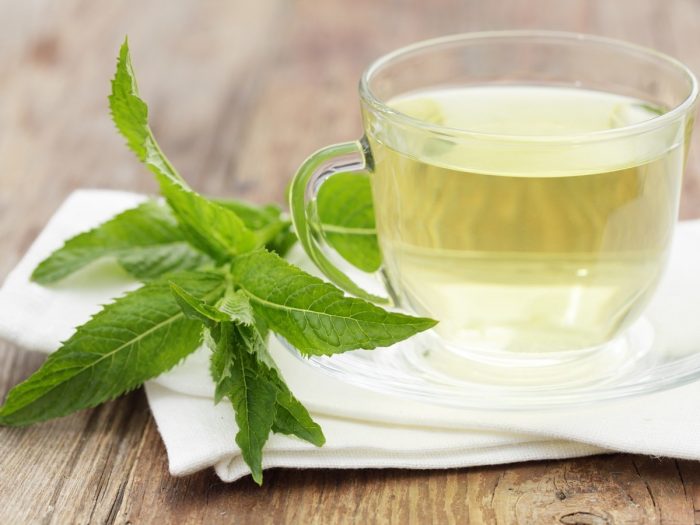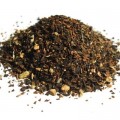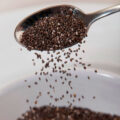Some people enjoy peppermint tea for its flavor and cooling effect, but others enjoy it for its health benefits. As a handy household herb, peppermint is considered useful in treating multiple types of discomfort, particularly where digestion is concerned.
The benefits of peppermint tea aren’t all nutritional: it also contains scarcely any calories, has a soothing effect on your digestive tract, and can be relaxing to drink. As for its health benefits, the mint found in peppermint tea contains a high quantity of antioxidants, which can help keep your skin and organs healthy? What are some of the other health benefits of peppermint tea?
1. Provides Digestive Discomfort
There haven’t been a lot of scientific research studies conducted on the health benefits of peppermint tea yet, but those which have been done suggest that there may be advantages for sufferers of Irritable Bowel Syndrome (IBS) and other types of digestive discomfort.
Peppermint tea contains menthol, which is peppermint oil. According to a 2014 study, IBS patients who took peppermint tea or used peppermint oil supplements directly found that their abdominal cramps and diarrhea reduced in severity and frequency. Additionally the tea had no negative side effects, making it a healthy and gentle natural treatment.
If you do not have IBS but are experiencing digestive discomfort, peppermint tea can help you to reduce your symptoms as well and recover more quickly than you would without it. It is a handy tea to keep around the house, whether or not you have IBS.
2. Treats Bad Breath
A lot of people drink peppermint tea to reduce their bad breath. If you routinely have bad breath because you have gum disease, or you are experiencing bad breath in conjunction with sinusitis or another infection, you will find that drinking mint tea can help to freshen you up.
According to a 2013 study, peppermint mouthwash ”can have an effect on the elimination of halitosis significantly.” Since peppermint mouthwash contains active ingredients from the peppermint plant, it is safe to assume consuming the tea will help treat bad breath as well.
3. Helps You Relax and Sleep Better
If you have a difficult time relaxing, particularly around bedtime, you may do better with a cup of peppermint tea before you head off to sleep. Peppermint tea can help you relax and can take some of the tension out of your muscles. Think of it as an alternative to a glass of warm milk before bed.
4. Relieves the Symptoms of Cold
Peppermint tea is sometimes prescribed as a treatment for the common cold, or even as a preventative. In some countries, the label lists these benefits, while in others, it doesn’t.
5. Improves Memory
According to a 2016 study, peppermint tea can also improve short-term and long-term memory. The study was conducted on 180 volunteers, and it showed a clear link between the tea and enhanced mood and cognition. The results also indicated other health benefits of peppermint tea, such as reducing headache and stomach pain, indigestion, and diarrhea.
Other Possible Health Benefits of Peppermint Tea
Since there is only limited evidence on the following health benefits of peppermint tea, at this point no one is sure whether peppermint tea contributes positively or not. You will have to try it and see for yourself.
- Peppermint tea may help with nausea and vomiting, not just cramps and diarrhea. There’s a pretty good chance even if this is not a direct effect that it is an indirect one, since mint tea definitely helps with some aspects of IBS. Usually, the better you feel in one respect, the easier it is to relax and feel better in another. So overall IBS symptoms may decrease all around.
- It is also possible that peppermint tea helps with some headaches, particularly those which are tension related.
- Some mint tea advocates swear by it for managing asthma.
- Others say it helps them to relax psychologically and not just physically, reducing stress.
Precautions – Not Good for GERD
If you have gastroesophageal reflux disease (GERD), also known as acid reflux, you probably should avoid peppermint tea, at least while you are experiencing bouts of acid reflux. Why? The relaxing properties of peppermint oil may backfire with GERD, since the peppermint may relax your lower esophageal sphincter. When that happens, your stomach contents can push up into your esophagus. The result is acid reflux. So peppermint tea may actually aggravate this particular digestive condition. If you have GERD or are experiencing an acidic imbalance, go for an alkaline drink or food instead.
Wrapping Up
Most of the health benefits of peppermint tea are purported at this point and not proven through clinical trials. However, there is a fairly substantial amount of evidence for digestive treatment. If you have IBS, definitely give it a try. Even if you don’t, you may want to keep it around for occasional bouts of stomach upset.
Avoid peppermint tea for GERD, and consider it if you have problems sleeping, asthma, or suffer from headaches. There is a chance that peppermint tea can help you with some of these problems as well.
Peppermint tea is safe and all natural and generally has no adverse side effects, making it a versatile and healthy treatment for a variety of conditions.














Thanks for some other informative website. The place else could I get that kind
of information written in such a perfect approach?
I have a undertaking that I am just now operating on,
and I have been at the look out for such information.